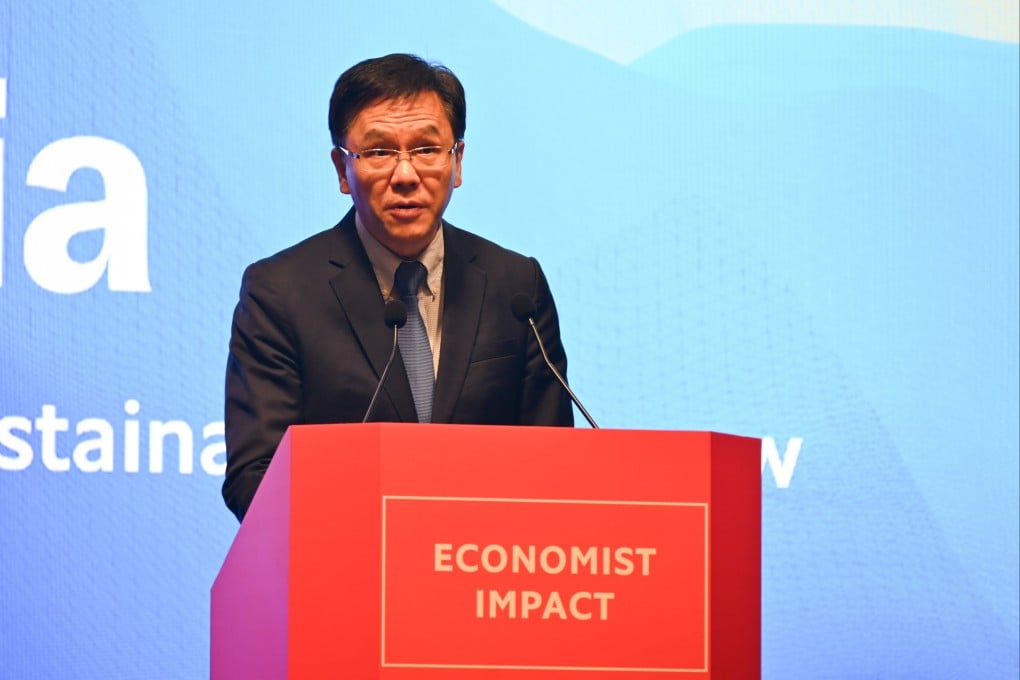Advertisement
Hong Kong officials tout city’s AI credentials and mainland connector role to woo executives at tech event
- Hong Kong secretary for innovation Sun Dong tells Economist conference city is a bridge to mainland China and poised to be major AI hub
- Cyber-sovereignty may not yet be a liability for AI development, says keynote speaker Jimmy Wales, Wikipedia’s co-founder
Reading Time:3 minutes
Why you can trust SCMP
2

Hong Kong officials have touted the city’s continued strength as a bridge to China and ability to adapt to the artificial intelligence (AI) era to a room full of tech executives and entrepreneurs.
At the Economist Impact’s first “Technology for Change Asia” conference in Hong Kong on Tuesday, Secretary for Innovation, Technology and Industry Sun Dong highlighted the importance of AI and data science for Hong Kong as one of China’s key strategic industries.
However, Sun also noted the challenges that still exist in areas such as information security and privacy – a topic that hung over the conference as attendees grappled with the risks as well as the opportunities of recent AI developments.
Advertisement
“As we enter into a new era of technological revolution and industrial transformation with artificial intelligence, Hong Kong is striving to become an international innovation and technology hub,” Sun said, pointing to recent policies like the plan to launch 100 digital initiatives under a new Digital Policy Office.
Hong Kong has sought to establish itself as an Asian data hub that serves as a link between mainland China and the rest of the world, but Beijing’s tighter regulation of data leaving the mainland has complicated the special administrative region’s goals in this area.
Advertisement
The mainland’s walled-off internet has also raised questions about its ability to compete in generative AI, which requires models trained on a wide swathe of data.
Advertisement
Select Voice
Choose your listening speed
Get through articles 2x faster
1.25x
250 WPM
Slow
Average
Fast
1.25x